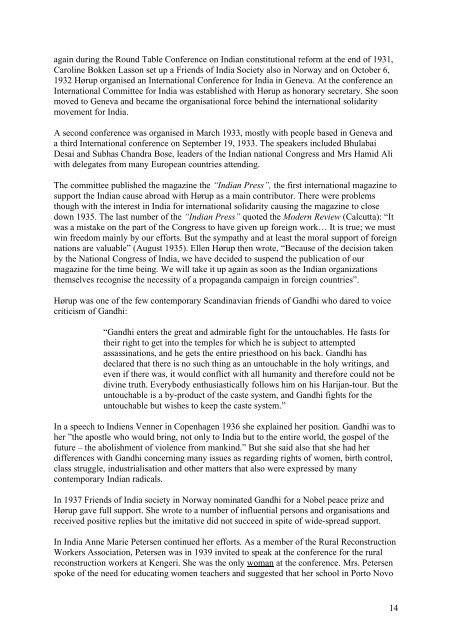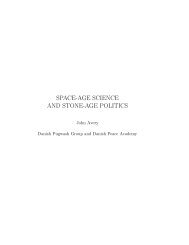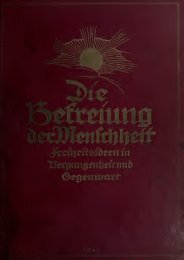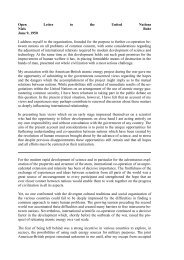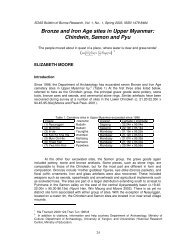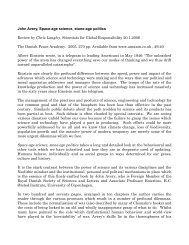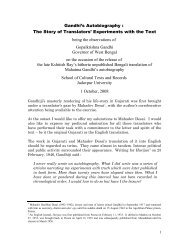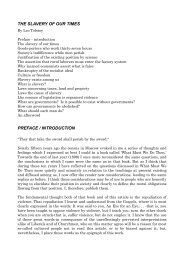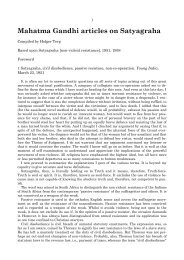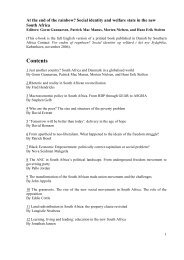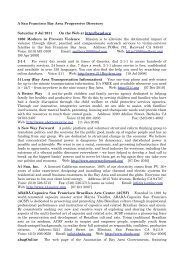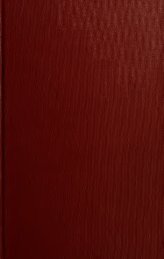Indian-Nordic Encounters 1917-2006 - Det danske Fredsakademi
Indian-Nordic Encounters 1917-2006 - Det danske Fredsakademi
Indian-Nordic Encounters 1917-2006 - Det danske Fredsakademi
You also want an ePaper? Increase the reach of your titles
YUMPU automatically turns print PDFs into web optimized ePapers that Google loves.
again during the Round Table Conference on <strong>Indian</strong> constitutional reform at the end of 1931,<br />
Caroline Bokken Lasson set up a Friends of India Society also in Norway and on October 6,<br />
1932 Hørup organised an International Conference for India in Geneva. At the conference an<br />
International Committee for India was established with Hørup as honorary secretary. She soon<br />
moved to Geneva and became the organisational force behind the international solidarity<br />
movement for India.<br />
A second conference was organised in March 1933, mostly with people based in Geneva and<br />
a third International conference on September 19, 1933. The speakers included Bhulabai<br />
Desai and Subhas Chandra Bose, leaders of the <strong>Indian</strong> national Congress and Mrs Hamid Ali<br />
with delegates from many European countries attending.<br />
The committee published the magazine the “<strong>Indian</strong> Press”, the first international magazine to<br />
support the <strong>Indian</strong> cause abroad with Hørup as a main contributor. There were problems<br />
though with the interest in India for international solidarity causing the magazine to close<br />
down 1935. The last number of the “<strong>Indian</strong> Press” quoted the Modern Review (Calcutta): “It<br />
was a mistake on the part of the Congress to have given up foreign work… It is true; we must<br />
win freedom mainly by our efforts. But the sympathy and at least the moral support of foreign<br />
nations are valuable” (August 1935). Ellen Hørup then wrote, “Because of the decision taken<br />
by the National Congress of India, we have decided to suspend the publication of our<br />
magazine for the time being. We will take it up again as soon as the <strong>Indian</strong> organizations<br />
themselves recognise the necessity of a propaganda campaign in foreign countries”.<br />
Hørup was one of the few contemporary Scandinavian friends of Gandhi who dared to voice<br />
criticism of Gandhi:<br />
“Gandhi enters the great and admirable fight for the untouchables. He fasts for<br />
their right to get into the temples for which he is subject to attempted<br />
assassinations, and he gets the entire priesthood on his back. Gandhi has<br />
declared that there is no such thing as an untouchable in the holy writings, and<br />
even if there was, it would conflict with all humanity and therefore could not be<br />
divine truth. Everybody enthusiastically follows him on his Harijan-tour. But the<br />
untouchable is a by-product of the caste system, and Gandhi fights for the<br />
untouchable but wishes to keep the caste system.”<br />
In a speech to Indiens Venner in Copenhagen 1936 she explained her position. Gandhi was to<br />
her ”the apostle who would bring, not only to India but to the entire world, the gospel of the<br />
future – the abolishment of violence from mankind.” But she said also that she had her<br />
differences with Gandhi concerning many issues as regarding rights of women, birth control,<br />
class struggle, industrialisation and other matters that also were expressed by many<br />
contemporary <strong>Indian</strong> radicals.<br />
In 1937 Friends of India society in Norway nominated Gandhi for a Nobel peace prize and<br />
Hørup gave full support. She wrote to a number of influential persons and organisations and<br />
received positive replies but the imitative did not succeed in spite of wide-spread support.<br />
In India Anne Marie Petersen continued her efforts. As a member of the Rural Reconstruction<br />
Workers Association, Petersen was in 1939 invited to speak at the conference for the rural<br />
reconstruction workers at Kengeri. She was the only woman at the conference. Mrs. Petersen<br />
spoke of the need for educating women teachers and suggested that her school in Porto Novo<br />
14


